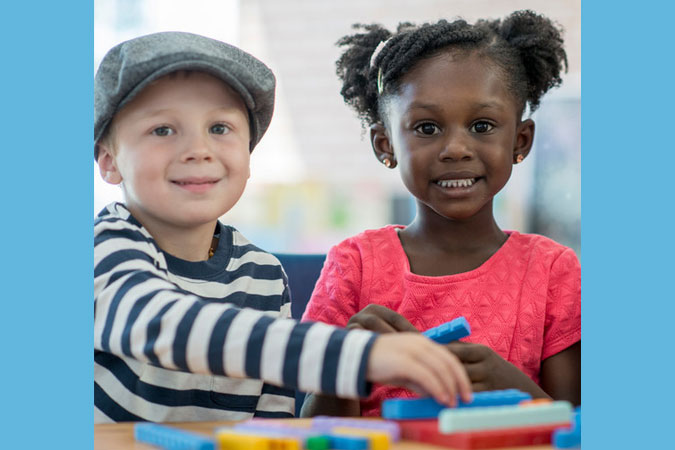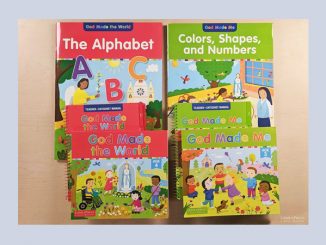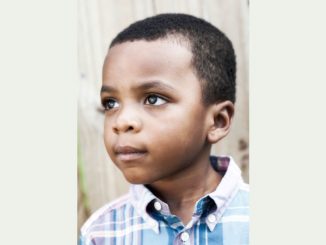
Whenever I would tell folks that my inclination is to teach older children—eighth grade or high school—some would remark, “Oh, I admire you for teaching the older kids. I could never do that. I teach the little ones.” In response, I would always say, “Oh, I admire you! I could never teach that age group!”
And that’s the truth! I don’t have the gift of connecting with the “wee ones” of early childhood (pre-school, K, primary). It takes a special gift to be able to work with children at that precious age and, contrary to popular belief, it involves a lot more than just fun and games.
Early childhood experts have identified specific principles that are key to effective learning at this age. Those principles include—but are not limited to—the following:
- Early experiences have profound effects on subsequent learning. This means that early childhood catechists need to formulate activities that are Christ-centered in order to awaken an awareness of God’s love, our Catholic faith, Tradition, culture, and identity. The seeds of faith are sown for a lifetime.
- Young children learn in a variety of ways. It’s a mistake to think that all young children learn the same way. Even at an early age, children show signs of multiple intelligences and learning styles. Early childhood catechists need a variety of learning tools at their fingertips.
- Young children are capable of developing the capacity for quiet time and sustained learning experiences. Again, it is a mistake to dismiss young children as having no attention span. While it is indeed short, they have the capacity to begin developing this skill that lays the foundation for reverent behavior and active listening, which is key to a life of prayer and worship.
- Young children learn at varying rates. Young children have diverse learning needs and develop at different rates. Like all catechists, early childhood catechists need to prepare lessons that engage children who are early, intermediate, and advanced in their development.
- Play is more than “play.” While play is a big part of early childhood education, it’s important to know that such play can and should promote language, cognitive development, and social and emotional development. Early childhood catechists need to know that playing is learning.
- Learning advances when children are challenged. In all catechesis, our goal is to move people to “the next step.” The same is true for early childhood. Catechists must present faith concepts in a simple, clear, and developmentally appropriate way in order to lay the foundation for future learning.
- Children’s experiences shape their motivation. How we teach is as important as what we teach. In early childhood, it is imperative that concepts such as Sacred Scripture and Catholic Tradition are presented in an inviting and engaging manner that reveals their beauty and motivates children to learn more about God.
- Young children develop more freely when they have secure relationships with other participants and adults. Faith formation is always about forming relationships: with others and with God. Young children need to feel a sense of warmth and an invitation to be part of a caring community of learners and believers through whose example and guidance they can rely now and for a lifetime.
All of these key principles are embodied in the wonderful early childhood programs from Loyola Press:
God Made Everything (Ages 3 & 4)
Christ Our Life: God Loves Us (Kindergarten)
Finding God (Kindergarten)
Contact your Loyola Press Educational Consultant to learn more about these wonderful early childhood resources!





I too admire the early childhood catechists since it is not my gift. Important to let all know that God calls us to lead disciples but we may not be suited to every age group. Thanks Joe